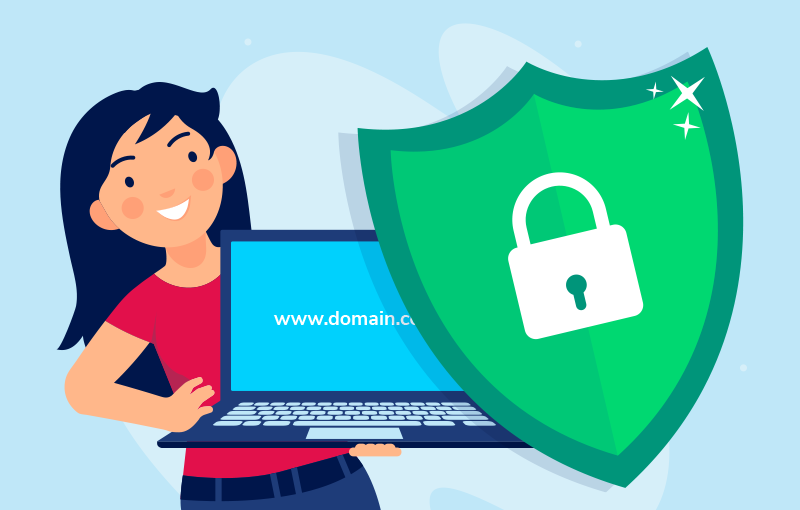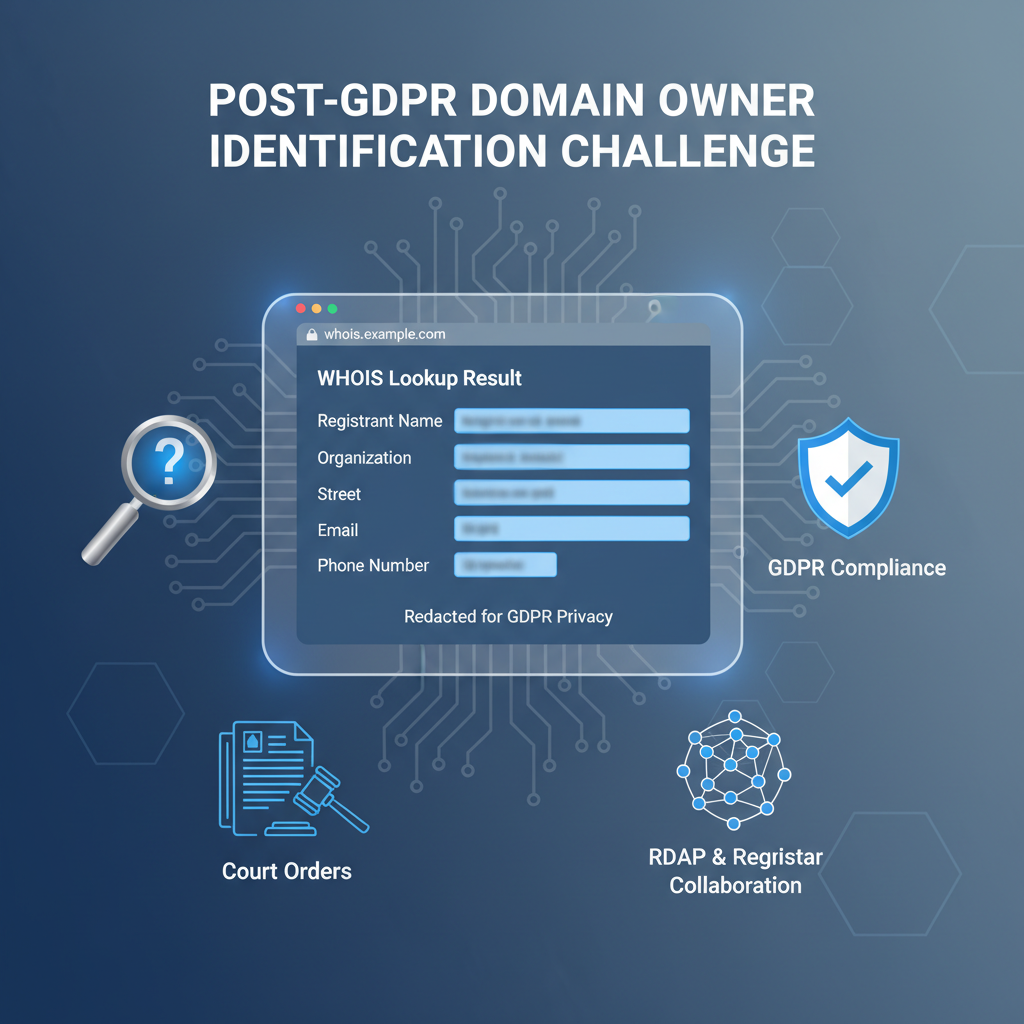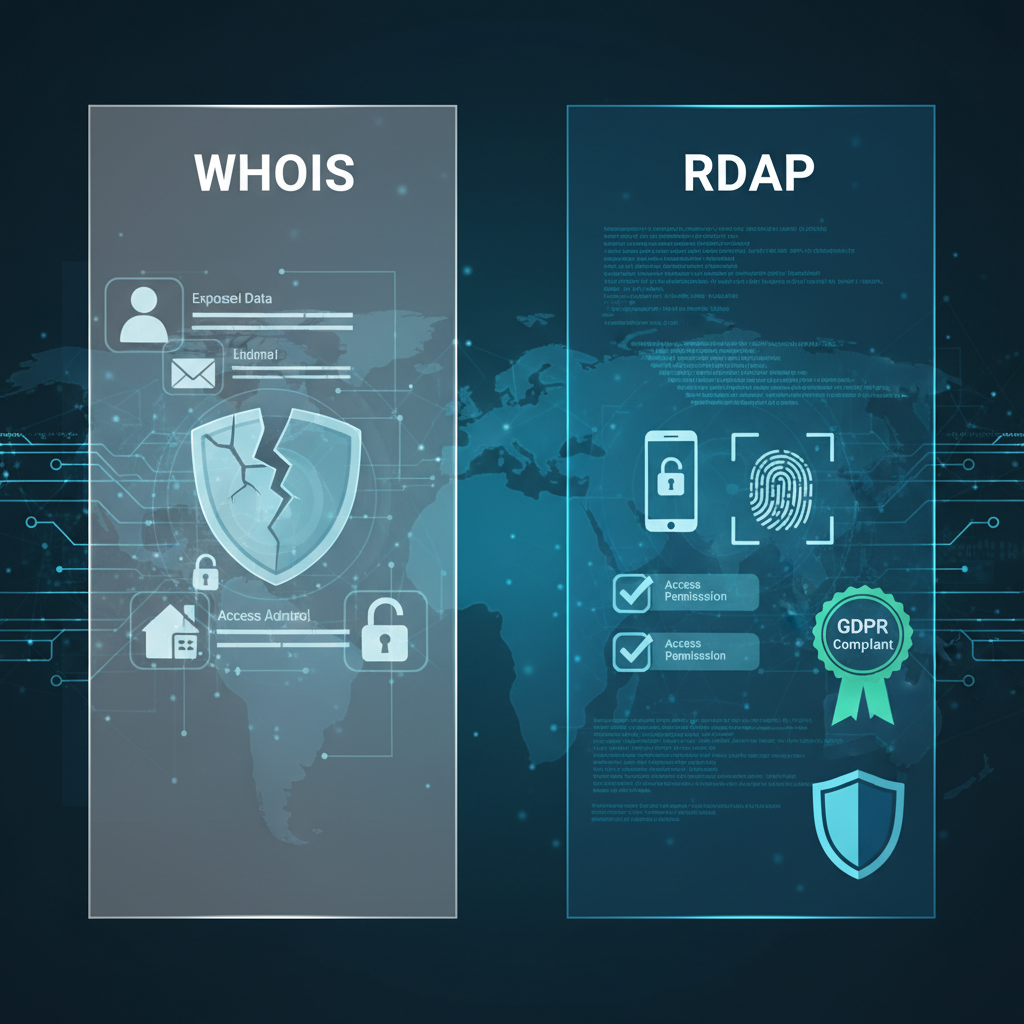What Is Domain Privacy?
There are domain registrars that provide the privacy of customers as a service to conceal their information from the public WHOIS database. Domain owners pay for this service at their domain registrar, and the registrar will then substitute the owner’s contact information in the WHOIS database with a mailing or forwarding address of its own.
What Does Domain Privacy and Protection Do?
It takes the owner’s domain information out of the public WHOIS database and saves their privacy. The Internet Corporation for Assigned Names and Numbers (ICANN) manages the massive WHOIS database. ICANN requires that everyone who buys a domain provide them with contact information. In turn, they list that contact information in a public database called WHOIS.
You can go to the WHOIS database and look up a domain to find the contact information of its owner. Lots of domain owners don’t like having their contact information so easily accessible to the public, especially because spammers can find it. So they pay their domain registrars for a WHOIS substitution service of sorts. The registrar will replace the customer’s contact information with a forwarding or proxy address in the public WHOIS database so that people can’t use WHOIS to look up the real customer’s contact details.
Do I Need Domain Privacy?
If you don’t want your email address or phone number to appear on the Internet, you’ll have to pay for privacy protection. That’s because when you register a domain name, you really put your contact information out there. In fact, there’s something called a WHOIS database where domain names and the contact information associated with them are stored. Some spammers and telemarketers mine this database to pluck out domain owners’ contact information and then hassle them. “Hey, you wanted my privacy invasion. Here it is for you.”
Domain privacy is a given for residents in the European Union. You get it for free. That’s not the case in the United States, where domain owners are required to pay for it unless it’s bundled up with a package that includes hosting services. People who move from the EU to the U.S., or just across the Atlantic, are losing the convenience and privacy of the EU’s domain privacy provision.
Numerous countries in the world have adopted statutes very similar to the GDPR. Some of these countries include Turkey, South Korea, Argentina, and Brazil. Meanwhile, the United Kingdom, which was formerly a member of the European Union, has introduced a comparable statute. The upshot is that if you reside in one of these countries, you may not necessarily have to purchase a private domain name registration for the purpose of maintaining your privacy. Nevertheless, as you will learn in this chapter, customers in numerous other countries need private domain registration for the purpose of affording themselves the very same layer of privacy.
How Important Is Domain Protection?
Why it matters: It lets you protect the privacy of your data. If you don’t have WHOIS privacy, then anyone who wants to know who is behind your domain and website just needs to do a simple search on your domain name and they’ll find your personal information—your name, address, email address, and phone number. For a cybercriminal, that’s a nice, tidy little package to plan and execute a cyberattack. And for you, that’s definitely not the outcome you want when a simple $10 can protect you for up to a year.
1. Ensures Privacy of Personal Data
When a domain is registered, the associated contact information is often entered into public databases. However, privacy protection can be purchased to keep one’s personal information out of the hands of nefarious actors. This can afford individuals the same kind of privacy when they register a domain as when they live at an address. And using a privacy service allows the individual to choose not to associate their real contact information with any particular online venture.
2. Reduces and precludes spam
The internet’s biggest problem is indeed spam. Yet what is spam? Spam, a short and unsatisfactory appellation, refers to a myriad of vague, disarming, and non-interactive content, containing verbiage meant to prompt some action from the recipient of this content. The spam is “colorful” to look at, in that it takes many negligible but still noticeable liberties with your inbox’s, that is, your eyeball’s contents.
3. Anonymity
There are various reasons why lots of individuals feel ill at ease with the presence of their personal information online. Nonetheless, even when you alone control many domain names, anonymous surfing is possible when you opt for domain privacy and protection.
4. Keeps Competitive Data Mining at Bay
Lots of businesses dig into public databases for data on their competitors. For instance, if you’re the secretive author of a popular blog, other bloggers might try to nail down your actual name and then spend quality time searching for juicy tidbits that would discredit or harm you. Domain privacy and protection is a good way to make it hard for your rivals (and anyone else) to look up the info that ties you to your domain name.
5. Keeps Your Domain from Being Stolen
Cybercriminals holding your domain hostage does not always involve their hacking into your domain registrar’s system. In fact, it requires a lot less effort on their part and is done to a large extent with phishing emails that lead the recipient to an authentic-looking but actually non-legitimate “you can now login to your domain account by clicking here” web page.
Now what happens is that the scam artist logs on using the stolen login and password, completes a company change of registrar, and—voila!—you no longer have access to your valuable domain name.
How To Get Domain Privacy And Protection
When Buying a Domain
When you purchase a domain name, you will most likely be offered the opportunity to add privacy protection. This is a good opportunity for the registrar to get you to spend a little more money. But don’t feel bad about saying “yes” to privacy; most folks do. Of course, you can pay and still live in a glass house if you’ve registered the domain in your own name and then not paid extra to hide WHOIS information. On the other hand, if you do pay for privacy, you really can do that with a good conscience.
Add To An Existing Domain
There is always the option to purchase privacy protection for a domain name you already own.
Follow these instructions:
- Log in to your domain registrar account.
- Navigate to the domain management section.
- Select the specific domain name for which you need privacy.
- Click on the Security tab. You will likely see a button that says something about WHOIS protection. Click it.
- You will then be taken to a payment page. Go ahead and complete the payment. (The amount will vary, but it is often around $5–$10 per year.)
- Once your payment is confirmed, your domain registrar will update the WHOIS database within a few short hours.
You can find privacy protection services offered by many registrars, almost always for a fee. The process to add privacy protection is the same (or very similar) as when you register the domain in the first place.
FAQs on Domain Privacy
Is it necessary to add protection of privacy when I am buying a domain name?
Should I also add this privacy protection when I am selling a domain name? The clear answer to both of these questions is: definitely, yes. In fact, failing to take advantage of the option to hide domain name registration details may not only make your life a lot easier (in terms of fielding unwanted telephone calls and other nuisances), it may also save you from being ripped off—either directly or indirectly.
What steps should you take to purchase a domain with privacy protection?
When you search for a domain name, the search engine will typically display some results. Look for the option to buy privacy protection on that search page, and add it to your cart in tandem with the domain name. Then, check out and pay for both items, and you’ll have purchased the privacy protection for your new domain.
Can I have privacy on any domain name I purchase?
You can have privacy on most domain names, but there are a few exceptions. Some domain names, like those ending in .us or .fr, for example, are not eligible for privacy because of government rules.
Does it come at a cost, domain privacy, and protection?
On average, it will run you between $10 and $20 per year to register a domain with the privacy and protection included, although some registrars offer the services for free.



